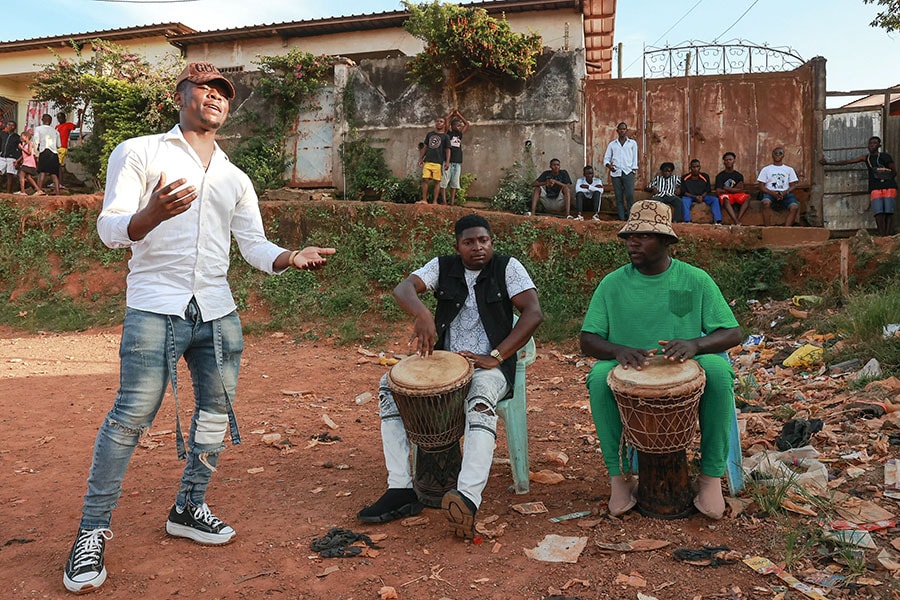
Cameroon's 'funeral music' gives voice to frustrated youth
Mbole (pronounced "em-bo-lay") developed around a quarter of a century ago in poor districts of Yaounde, the central African nation's capital. Around six years ago, it started to go mainstream, and it is now feted as a national music genre
 A group of young Mbolé artists gather in a stadium during an improvisation session in the Mvog-Ada district in Yaounde.
Image: Daniel Beloumou Olomi / AFP
A group of young Mbolé artists gather in a stadium during an improvisation session in the Mvog-Ada district in Yaounde.
Image: Daniel Beloumou Olomi / AFP
It began as a form of music chanted at wakes to comfort mourners—now it is part of Cameroon's cultural mainstream, and a powerful form of expression for its frustrated youth.
Mbole (pronounced "em-bo-lay") developed around a quarter of a century ago in poor districts of Yaounde, the central African nation's capital.
It began as a sort of back-and-forth at funeral vigils between a chanter, who would devise lyrics and sing them, and "responders," who sang the lyrics back and provided rhythm using buckets, saucepans or other implements.
"You would invite people around, you formed a circle, and you started to play to keep people entertained," said Etienne Koumato, a 24-year-old biology student who performs in a mbole group called League des Premiers and is signed to a specialist record label.
"At the start, mbole was stigmatised—people looked on it as gutter music, like rap," he said.







